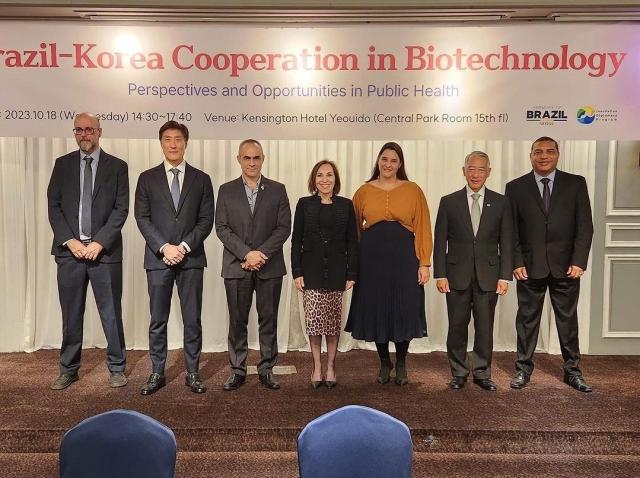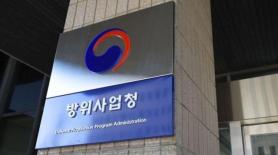
"The seminar aims to find a way to collaborate in the fields of biosimilar, vaccine, and public health," Brazilian Ambassador to South Korea Marcia Donner Abreu told speakers and audience who participated at the seminar event held near central Seoul on October 18. Although the COVID-19 pandemic swept across Brazil in 2020, the envoy said she was vaccinated about nine months after the outbreak.
The veteran diplomat said that she hopes the seminar to enhance Brazil's public health system. "The cooperation will absolutely and immediately improve Brazil's public health system because when South Korean biotechnology companies produce medicine in Brazil, Brazilian specialists will be trained and transferred with the know-how of medicine production."
According to the ambassador, South Korea could benefit from transferring technology to Brazil. "The production process would eventually become affordable for the people of Brazil while South Korean companies gain a strong foothold in the country where there's huge potential to become the bridgehead to nearby markets in countries located in the Central and South American regions," Abreu told Aju Korea daily. "We have the production capability and human resources to support South Korea's operations in Brazil," she said.
Stressing the importance of the cooperation between South Korea and Brazil, Abreu pointed out the collaboration would also help Brazil build stronger infrastructure for public health and the production of biosimilars.
Edson Luis de Brito, an international consultant at the Korea Health Industry Development Institute, also backed Abreu's idea. "Brazil needs to overcome the lack of infrastructure in the pharmaceutic industry," said the consultant, adding the cooperation would not only create benefits in the medicine sectors, but the cooperation will also become a wind of change in the culture of the people. "Through the South Korean model that places importance on education, we hope to nurture specialists to become an internationally-recognized country that exports medicines," he said.
Pak Sang-jin, the executive vice president of Samsung Bioepis, a biopharmaceutical wing of Samsung, said he will contribute to the development of Brazil's pharmaceutical industry. Pak said: "We will complete the current PDP (productive development partnerships) programs which also involves training Brazilian experts for the local production." Currently, two Samsung products are involved in the PDP program. The two drugs are Trastuzumab, a monoclonal antibody used to treat breast cancer, and Etanercept, one of the best-selling pharmaceutical products that treat chronic diseases.
The event was also attended by Jerome Kim, head of the International Vaccine Institute (IVI) based in Seoul. The IVI head emphasized the institute's role to provide transnational support services to beef up the world's bio-manufacturing capabilities.
Copyright ⓒ Aju Press All rights reserved.




